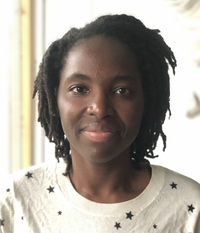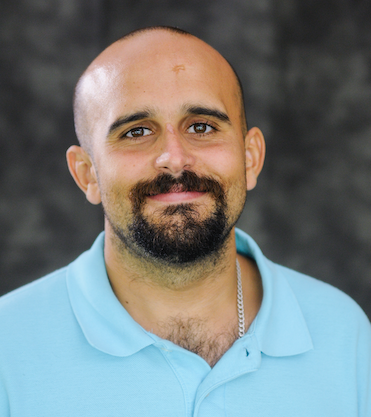Friday, April 2, 2021
Speaker Bios

Dr. Sabine Cadeau is a historian of the Caribbean and the broader African Diaspora. She is interested in histories of slavery, empire, race, citizenship and human rights. Her forthcoming book More Than a Massacre: Racial Violence and Citizenship in the Haitian-Dominican Borderlands is under contract with Cambridge University Press. More than a Massacre traces a successively worsening campaign of explicitly racialized anti-Haitian repression that began in 1919 under the American occupiers, accelerated in 1930 with the rise of Trujillo, and culminated in 1937 with the slaughter of an estimated twenty thousand civilians. Relatively unknown by contrast with contemporary events in Europe, the Haitian-Dominican experience has yet to figure in the broader literatures on genocide and statelessness in the twentieth century. A parallel project, titled 'Victims in Their Own Words: Remembering the Forgotten 1937 Haitian Massacre', is a documentary history based on interviews with massacre survivors and their descendants.
Dr. Cadeau is currently a postdoctoral fellow in the University of Cambridge Legacies of Enslavement Inquiry. Her current research explores the University of Cambridge’s historic connections to slavery and colonialism. She has been working with financial records and other sources in Cambridge libraries, colleges, museums, and other archives. At Cambridge she organizes regular public events on the legacies of enslavement and she organizes the ‘Slavery and Its Afterlives’ seminar series hosted by the Legacies of Enslavement Initiative and the Centre of African Studies.
Dr. Cadeau received her PhD in Caribbean Atlantic World history and Modern Latin America from the University of Chicago in 2015. From 2017-2019, she was visiting assistant professor in Caribbean history at the University of South Florida at Tampa. From 2016-2017 she was a postdoctoral fellow in Yale University’s Program in Agrarian Studies. From 2015-2016, she was a postdoctoral fellow at Rutgers University. Her research has been supported by the Andrew Mellon Foundation, The Social Science Research Council, and the Woodrow Wilson Foundation.

Johnhenry Gonzalez is a historian of the Caribbean with a primary focus on the history of Haiti. His work grows out of lengthy periods of research in Haiti and the Dominican Republic. He received his Ph.D. in history from the University of Chicago. He was a postdoctoral fellow at Duke and he worked for four years as assistant professor of Caribbean history at the University of South Florida at Tampa. His 2019 Book ‘Maroon Nation’ explores the political economy of early independent Haiti. His second book project in progress considers the history of foreign influence in the twentieth century Haitian art business. He is also currently in the early stages of his first archeological research project in Haiti. In the Cambridge history faculty he teaches on The Caribbean, Latin America, slavery and the African diaspora.'

Meghan Roberts is associate professor of history at Bowdoin College and a specialist on the history of eighteenth-century France, the history of science and medicine, and women's and gender history. She is the author of Sentimental Savants: Philosophical Families in Eighteenth-Century France and is currently working on a book about publicity, trust, and coercion in eighteenth-century medicine.

Laurie Wood is an Associate Professor of History at Florida State University, where she teaches courses in Atlantic, Indian Ocean, Early Modern European, and World History. Her first book, Archipelago of Justice: Law in France’s Early Modern Empire (Yale Univ. Press 2020), evaluates the interwoven trajectories of the people, such as itinerant ship-workers and colonial magistrates, who built France’s first empire between 1680 and 1780 in the Atlantic and Indian Oceans. Current projects include “The Everyday Materials of Colonial Legal Spaces,” and Flickering Fortunes: Women, Catastrophe & Complicity in the French Tropics.

